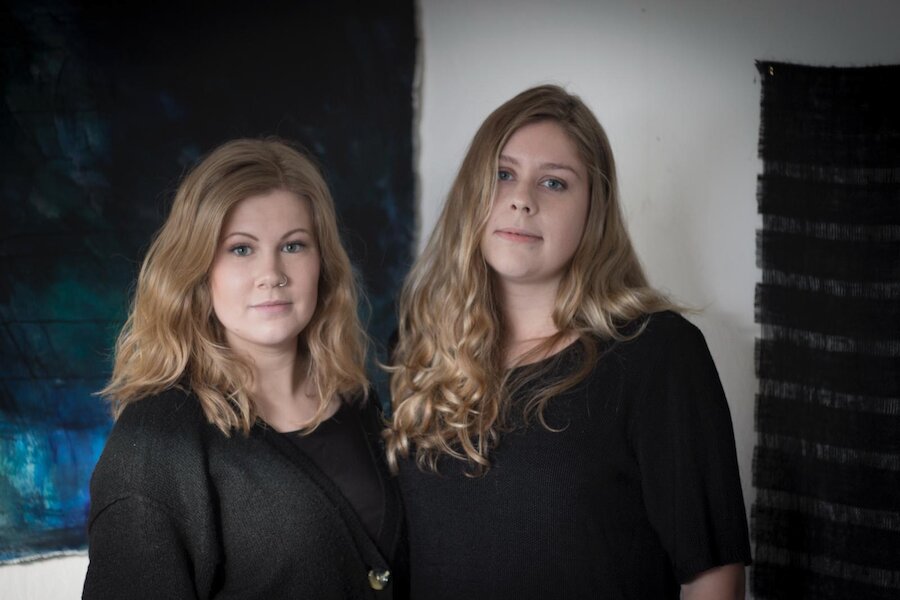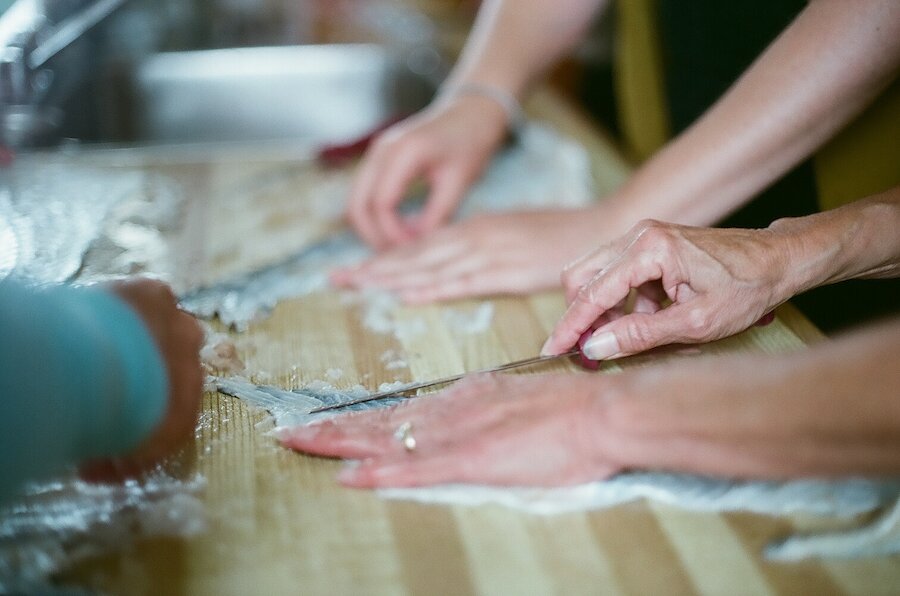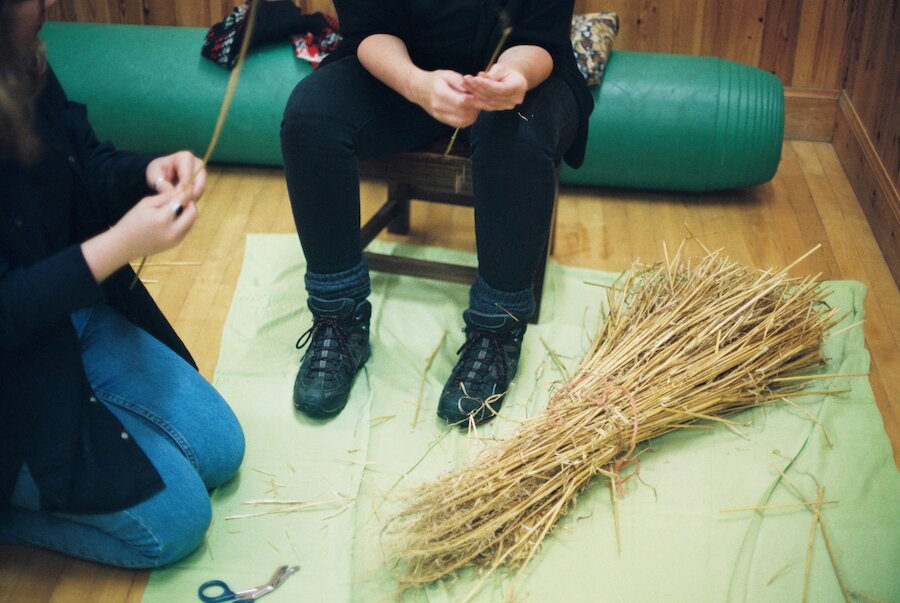What does islandness mean to you?
I’m interested in understanding a place through its people and its skills. Through that focus we have developed ‘Making Nights’ as part of our Islandness programming where we ask people to gather with their own personal process skill or craft – knitting, stitching, carving, drawing, painting, or anything else – and simply make in the same space for a while. Every time we gather in this very casual way, those involved feel completely comfortable talking about their place, life and experiences.
It’s that everyday sharing of heritage and culture, where you don’t even realise you’re doing it, that I feel you get so much. I feel privileged to have the means to make work about the islands and communities I’m so fascinated by, and I feel that interest will never run dry.
And what does it mean to you in relation to Shetland and growing up in Fair Isle?
Fair Isle is a working island. People have come and gone, some staying for a lifetime, some for just a few months. Many people have found the reality of living on Fair Isle too much to be comfortable with, while others strive on the knowledge that you must rely heavily on yourself and the small population around you to do well. Just as the island can deal out many difficulties however it gives as much and Fair Isle is a place that truly captures those who spend time there. In the end it doesn’t matter who has resided for a long or short time it just matters that each person has given a piece of themselves to the island. Misconceptions can show themselves however in over romanticised or skewed understandings of such places. To enjoy the good you have to work through the challenges, as a community and a joint effort. Islandness looks to explore these ways of being, asking participants to questions what it means to be an islander.
We want to challenge that the rural is no place to maintain a professional and pertinent art practice; that art and artists should be kept within an urban bubble of art and artists. While we are hoping to challenge some preconceived notions of rurality, I think the purpose of Islandness is to use our art practices as gateways to broaden dialogues and participation in a rural island context. In its essence, it is a living research project.


